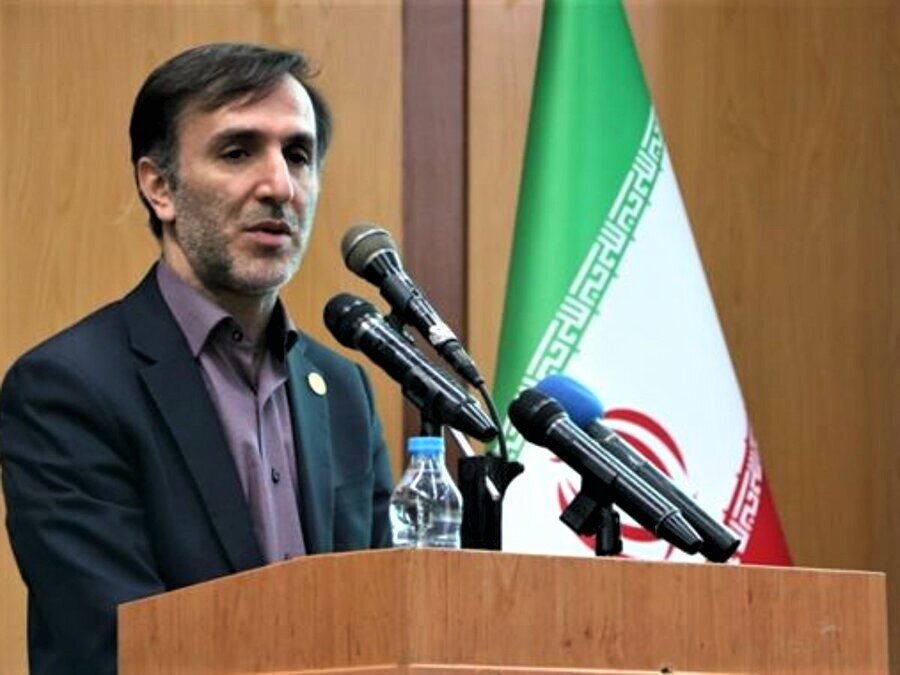EAEU agreement, a test for trade with world: TPO head

TEHRAN- Iran’s preferential trade agreement with the members of the Eurasian Economic Union (EAEU) is a test to evaluate the country’s infrastructure for trade with the world, the head of Iran’s Trade Promotion Organization (TPO) told IRNA.
“As the result of this agreement we recognized the infrastructure required for the [foreign] trade and plan to remove the problems in this field”, Hamid Zadboum noted.
Mentioning logistics as one of the issues with some problems in Iran’s trade activities, the official said, “We should pay attention to logistics because we cannot boost trade using the old logistic system.”
Iran’s agreement with the EAEU is a temporary one, including a number of items subjected to preferential trade, but getting close to the end of the first year, talks on the free trade agreement, which includes more items, will begin, the TPO head stated.
During a conference on promotion of trade with EAEU in Tehran on August 21, Zadboum had said that along with the implementation of the preferential trade agreement with the members of the Eurasian Economic Union, Iran is considering ways for removing the non-tariff barriers (NTBs) in trade with the union.
“Apart from the [preferential trade] agreement and the commodity items that we agree on, what should be considered as a side benefit of this agreement for both sides is the removal of non-tariff barriers to trade between the parties,” he noted.
Zadboum further underlined some of the problems in the way of trade between Iran and EAEU, including banking and money transfer problems, the lack of Iranian banking branches in some member countries, transportation problems and high transit costs, delays in issuing visas in some member countries, as well as customs problems, and expressed hope that they will be removed following the implementation of the preferential trade agreement.
The TPO head mentioned a working group established for monitoring the implementation of the preferential trade agreement between Iran and EAEU, and said: "We held the first meeting of the joint working group in the form of a video conference with the Eurasian Economic Union last month.”
Emphasizing the positive outcomes of the mentioned meeting, the official said that all the agreements reached in the working group meeting were signed by both parties in the form of a protocol and were turned into a document that was exchanged between the two sides.
“In this document, we agreed to hold preliminary talks three weeks before the start of the main negotiations, and to follow up on the side issues of the agreement, including standards, plant quarantine, transport and transit, and banking, each of which could have a working group,” he explained.
According to the official, the Central Bank of Iran (CBI) pursues the joint banking working group, Islamic Republic of Iran Customs Administration (IRICA) will be in charge of the joint customs working group, while Iran Chamber of Commerce, Industries, Mines and Agriculture (ICCIMA) follows up on the joint working group on rules of origin and the Ministry of Transport and Urban Development is in charge of the joint transportation and transit working group.
In mid-May, the TPO head had announced that the export of the commodities subjected to preferential tariffs from Iran to the Eurasian Economic Union’s member states had risen 85 percent since the implementation of the agreement between the two sides.
Zadboum also said that 13 percent of Iran’s imports from the EAEU are subjected to the preferential tariffs, while 49 percent of the country’s exports to the block is subjected to those tariffs.
The official said that Iran’s exports to the EAEU member countries are more variable compared to its imports from those states, adding exports can be even more expanded.
Iran and Eurasian Economic Union reached a free trade agreement in October 2018 based on which about 862 commodity items were subjected to preferential tariffs.
The interim agreement enabling the formation of a free trade area between Iran and the EAEU was signed on May 17, 2018, and officially came into force on October 27, 2019.
Iran is a very important market in the region and the development of ties with this country is of high significance for the EAEU members (Russia, Belarus, Armenia, Kazakhstan, and Kyrgyzstan).
The free trade agreement between Iran and this union has laid the ground for the expansion of trade ties between the two sides.
The agreement with the bloc has increased Iran’s exports to the EAEU member states significantly, which is a turning point for the Islamic Republic plans for boosting non-oil exports during the U.S. sanctions.
MA/MA
